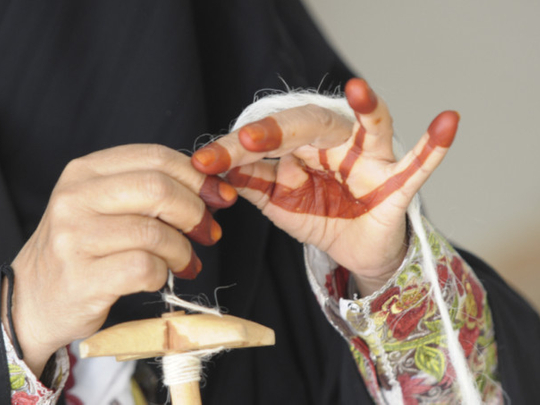
Rural Emirati women are using their creative skills to reconnect with their heritage and shake off the stigma of unemployment and dependency. For the first time in their lives, many are even contributing to the family coffers through traditional crafts.
Sougha, a non-profit social enterprise initiative of the Khalifa Fund for Enterprise Development, was set up to create employment opportunities for Emirati craftspeople living in the UAE. The scheme helps rural women by providing entrepreneurial and technical training and finds markets for their goods. In many cultures around the world, women have overcome economic hardships through craft.
“But the impact is beyond financial,” says Leila Ben-Gacem, Senior Manager, Entrepreneurship Development Department, Khalifa Fund. “The scheme is motivating and inspiring people.”
Among the 148 artisans working through Sougha is Bakhita Ajlan Al Mansouri from Ghayathi. The widow with six children says, “When I weave, I feel very motivated,” for before the markets Sougha provides there was little reason to create. “Every morning I wake up looking forward to what I am going to produce today.
“My morale is so much better now. I feel I have a mission. I really enjoy choosing colours and making designs,” she says. Her mother taught her to weave, but then they made large items so it took a long time.“Now weaving has taken a new direction,” she says, as they make smaller, colourful and trendy items.
The Sougha programme steers women towards making saleable products such as iPad covers, mobile phone holders and small coloured carryalls.
Ben-Gacem says that before Sougha, many women had stopped doing craftwork, some for as long as 20 years, because there wasn’t a market for their goods. Now the revenue earned goes directly to the individual artisans. During 2011 the top-earning craftswoman achieved an annual income of Dh139,281, while another earned Dh6,805.
Najla Hamed Al Mansouri, married with 11 children, says that she used to feel lost and had “no objective. Now I think non-stop, to design and make new products. It is part of our Bedouin life that all women have to learn to weave.”












